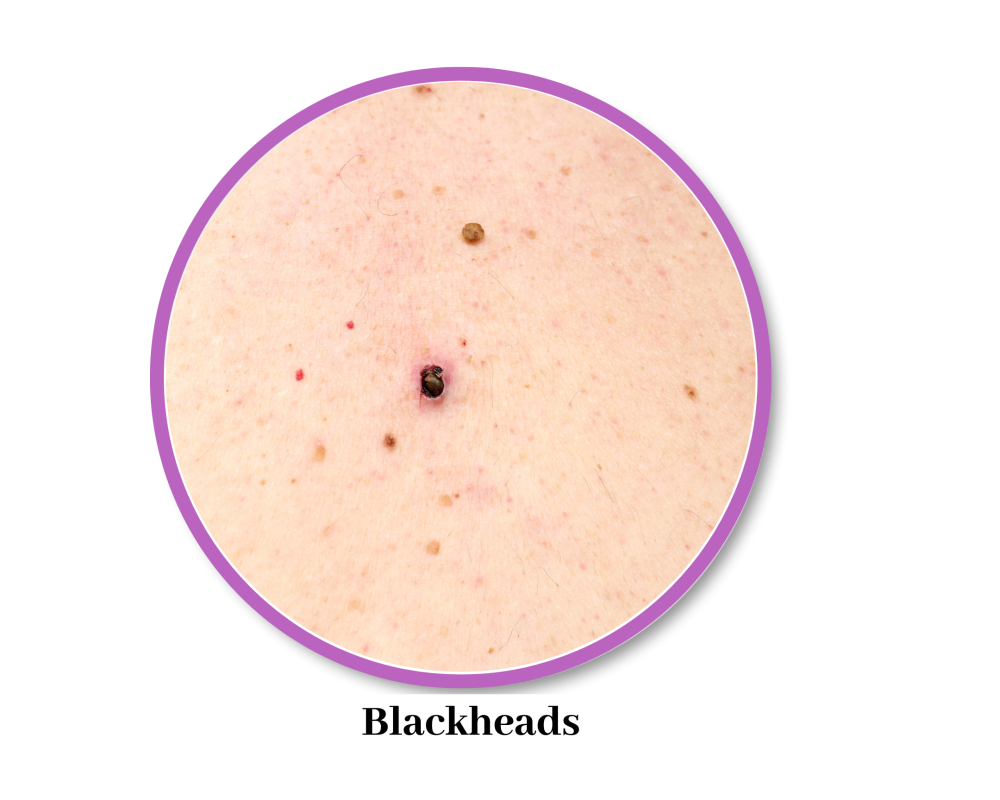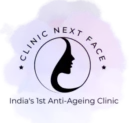Acne Vulgaris: Types, Images, Causes & Management Tips
Table of Contents
ToggleClinical trial data revealed that approximately 50% of women in their 20s, 33% of women in their 30s, and 25% of women in their 40s suffer from acne.
Highlights
- Acne vulgaris affects approximately 200 to 300 million people in India.
- People between 15 to 40 years of age develop acne vulgaris.
- The common symptoms of acne vulgaris are pimples, bumps, redness, rashes, tenderness, and boils.
- The treatment for acne vulgaris are antibiotics, cleansers, peels, creams, and laser therapy.
Acne Vulgaris - Meaning And Medical Definition:
Acne Vulgaris is a common form of acne in teenagers and young adults caused due to the accumulation of oil (sebaceous) glands in your skin which get inflamed and clogged. Acne usually develops when the oil glands get active around puberty and are stimulated by male hormones produced in the adrenal glands of both girls and boys. Acne Vulgaris is a medical term for breakouts, zits, or pimples.
This skin disorder attacks the pilosebaceous gland, i.e., the related oil gland and hair follicle. The extra production of sebum or natural oil and the buildup of bacteria and dead cells clog hair follicles which causes redness and inflammation in the form of acne. Facial acne, including breakouts in the cheek, nose, jawline, chin, and neck is one of the most common skin concerns.
Pimples may occur on your other body parts, such as the chest, back, arms and shoulders. Acne tends to occur in the teenage stage because of puberty. Pimples may develop or get more critical in adulthood for some people. Learn the types, causes, and symptoms of acne vulgaris so you can opt for the right prevention and treatment options.
Types And Classification Of Acne:
Acne Vulgaris is of two main types – Inflammatory and Non-inflammatory. Are you suffering from mild, moderate, or critical acne? Our dermatologist can identify and distinguish acne in the grades below depending on the type and severity:
- Grade 1 – Whiteheads, blackheads, and a few papules.
- Grade 2 – Multiple papules, pustules, whiteheads, and blackheads.
- Grade 3 – Pustules, papules, and occasional inflamed nodules
- Grade 4 – Multiple, painful, and large cysts, nodules, abscesses, and pustules.






Common Causes Of Acne Vulgaris:
The four main factors causing acne are – excess oil (sebum) production, bacteria, inflammation, and hair follicles clogged by oil and dead skin cells.
Here are the key internal and external causes of Acne Vulgaris that you need to know:
Internal Causes – They include the primary factors that play a crucial role in causing acne. Find them below:
Hormonal Changes: Hormonal issues, like PCOS, stimulate sebaceous glands and produce more sebum that causes acne breakouts. Hormonal changes in puberty, periods, pregnancy, and menopause cause breakouts.
Heredity: If your parents had acne issues, you are likely to have pimples frequently on your skin.
External Causes – Certain external factors are crucial in causing acne and defeating your skin. Find them below: These include –
Stress: A stressed lifestyle can trigger the sebaceous glands’ activities, which produces excess sebum and causes acne.
Diet: If you have sugary foods with a high glycemic index every day, they trigger acne.
Incorrect Skincare: Skincare and makeup products containing harsh chemicals may not suit your skin type, clog pores and cause breakouts.
Medications: Medicines containing lithium, DHEA, corticosteroids, and androgen cause acne as a side effect.
What Is The Pathophysiology of Acne?
Acne is the pilosebaceous unit’s chronic inflammatory disease. Acne’s pathophysiology includes abnormal follicular gratification, hyper seborrhea, and Propionibacterium acne proliferation in the pilosebaceous unit.
Find below the four processes that occur in the skin’s pilosebaceous unit, comprising the hair follicle and oil gland, and cause acne:
- Hormonal changes trigger excess oil or produce sebum in areas such as your face’s T-zone and neck with dense sebaceous glands.
- Follicle blockages occur because of excess accumulation of sebum and keratinocytes (dead skin cells).
- The increased activity of acne bacteria occurs in the clogged follicles.
- Your body’s defense system’s inflammatory reaction forms acne lesions.
Signs And Symptoms Of Acne:
The signs and symptoms of acne depend on the type and severity of your skin condition. Acne tends to occur on the face, forehead, chest, shoulders, and upper back. Here are the common signs and symptoms of acne:
- Whiteheads (closed clogged pores)
- Blackheads (open clogged pores)
- Small red and tender bumps (papules)
- Pimples (pustules) are papules with pus at their tips
- Big, solid, painful lumps under the skin (nodules)
- Painful, and pus-filled lumps under the skin (cystic lesions)
- Scar and pigmentation
- Cysts with deep abscesses
How Does A Dermatologist Diagnose Acne?
At Clinic Next Face, our dermatologist can diagnose acne by looking at the skin in a physical examination. They examine your face, back, or chest to find the various types of spots, such as blackheads and red nodules.
As we follow a holistic approach, our dermatologist may assess your family history, medical records, and lifestyle habits to suggest blood tests to find any hormonal imbalance. We recommend a custom treatment plan depending on the causes, type, and level of your acne. The severity of your acne determines the kind of treatment you should have.
The severity of acne is categorized as below:
- Mild – mostly blackheads and whiteheads with a few pustules and capsules
- Moderate – more intense blackheads and whiteheads with several pustules and capsules
- Severe – many large and painful cysts, nodules, pustules, and capsules, which may leave scars on your skin.
Are You At Risk?
Over 10 million people in India suffer from acne every year. If you have a family history of acne vulgaris or hormonal issues, like PCOS, you are more prone to acne and breakouts. People who experience hormonal changes because of puberty, pregnancy, and menopause are more at risk of acne.
If you are stressed or follow a poor diet, you are likely to have pimples. Once you notice an acne outbreak, you should consult our dermatologist to prevent scars, pigmentation, and its recurrence.
How To Prevent Acne Vulgaris?
Prevention of acne vulgaris is possible if you follow the skin care tips below:
- Wash your face two times a day with warm water and mild cleanser
- Apply moisturizer every day on cleansed face
- Avoid using makeup and skincare products containing harmful chemicals. Even if you use makeup, don’t forget to remove it before going to bed
- Use oil-free and non-comedogenic products
- Apply a sunscreen cream or lotion suited to your skin type before stepping outside and even on rainy days
- Don’t pick, pop and squeeze pimples as that can increase the inflammation and cause permanent scars
- Drink plenty of water to flush out toxins from your body and control acne
- Keep hands away from your face
- Change pillowcases every week to maintain hygiene
Does Self-Care of Acne Vulgaris Help?
Self-care gives temporary relief from Acne Vulgaris but it doesn’t work in the long run. Moderate and severe acne don’t cure with self-care and cause scarring. If self-care doesn’t improve, you should consult our dermatologists to prevent and remove acne scars.
Professional Treatments For Acne Vulgaris:
Treatment of Acne Vulgaris includes a variety of systemic and topical agents directed at controlling sebum production, inflammation, comedone formation, bacterial counts, and normalizing keratinization. At Clinic Next Face, doctors follow a holistic approach and deliver medico-aesthetic solutions to treat the main causes of acne and make your skin look flawless.
We may recommend the following treatment options as a singular or combined solution to deliver long-term satisfactory solutions.
Medical Treatments
- Oral Medications: Our dermatologist may recommend hormonal therapy to cure underlying hormonal issues, like PCOS and insulin resistance that may trigger acne breakouts.
- Topical Antibiotics: Our experts may ask you to apply antibiotic creams on your skin to diminish the bacterial activities and inflammation related to acne.
- Topical Retinoids: Applying doctor-prescribed topical gels or creams containing retinoids and advanced procedures can unclog pores and control acne on your skin.
Advanced Aesthetic Procedures
- Comedone Extraction: Our experts use special tools in a sterile setup to remove mild acne safely and perfectly.
- Intralesional Injections: Clinic Next Face gives a special injection to control the inflammation and pain caused due to nodular and cystic acne.
- Laser Treatments: Laser is one of the most effective treatment options to cure acne. When combined with other modalities, laser treatments deliver the desired results.
- Chemical Peels: Dermatologists at Clinic Next Face apply plant-made extracts on your skin to exfoliate and control acne.
- Dermapen Microneedling: One of the fastest treatments, which combines the peels and microneedling on targeted areas to get rid of all acne.
Prognosis:
Teenage acne tends to diminish itself by the mid-20s. Adult acne, mainly in women, may stay up to the age of 40. Acne usually required detailed examination and all-inclusive treatment to diminish. Many adults tend to develop mild and moderate acne lesions and then seek quick treatment to prevent scars and recurrence. If you don’t treat acne in the initial stages, it can cause permanent scars. You should always opt for early medical assistance.
Clinic Next Face aims to redefine the quality of skincare and deliver advanced solutions to people suffering from mild, moderate, and severe acne.
Common Questions
- Does Acne Go Away On Its Own?
No, acne doesn’t go away on its own. Teen acne may subside over time. But, adult acne needs medical help to diagnose. You need to treat the underlying cause for preventing the risk of recurrence and scarring.
- Is Acne Vulgaris Contagious?
No, acne vulgaris is not a contagious skin disorder.
- How Long Does Acne Vulgaris Last?
Acne vulgaris is a common issue in women during puberty and may stay until the early 20s. Some people may even experience adult acne because of hormonal imbalances.
- Should I Pop Acne?
No, you should never pop acne as it may ruin your skin condition and cause permanent scars.
- Is There A Permanent Cure For Acne Vulgaris?
No, acne vulgaris doesn’t have a permanent cure. However, Clinic Next Face can offer all-inclusive acne treatment to diminish the chances of breakouts.
- When Is The Best Time To Seek Help Of A Doctor?
The best time to consult a doctor is once you see a breakout. An immediate doctor consultation would diminish the chance of recurrence and scars.
- How Soon Can An Acne Treatment Show Results?
An acne treatment can show visible improvements in your skin after a few sessions. You should attend the number of sessions recommended by a doctor to see the desired results.
- Why Am I Getting Recurring Breakouts On Face?
You are getting recurring breakouts on your face because of improper skin care routine, hormonal issues, genetic propensity, unhealthy lifestyle, and unclean scalp.
- Do All Forms Of Acne Leave A Permanent Scar?
All forms of acne may leave some form of scars on your skin. But moderate and severe acne may leave or even permanent scar.
- Are There Any Side-Effects Of Acne Medication and Antibiotics?
No, anti-acne medication and antibiotics have no side effects when used under the guidance of a highly-experienced dermatologist.
Talk To Our Acne Expert Today!
No Obligations! Just jump on a quick call with our acne expert and know what kind of treatment will suit you the best.
Either way you will get some actionable tips to reach your skin goals faster.







